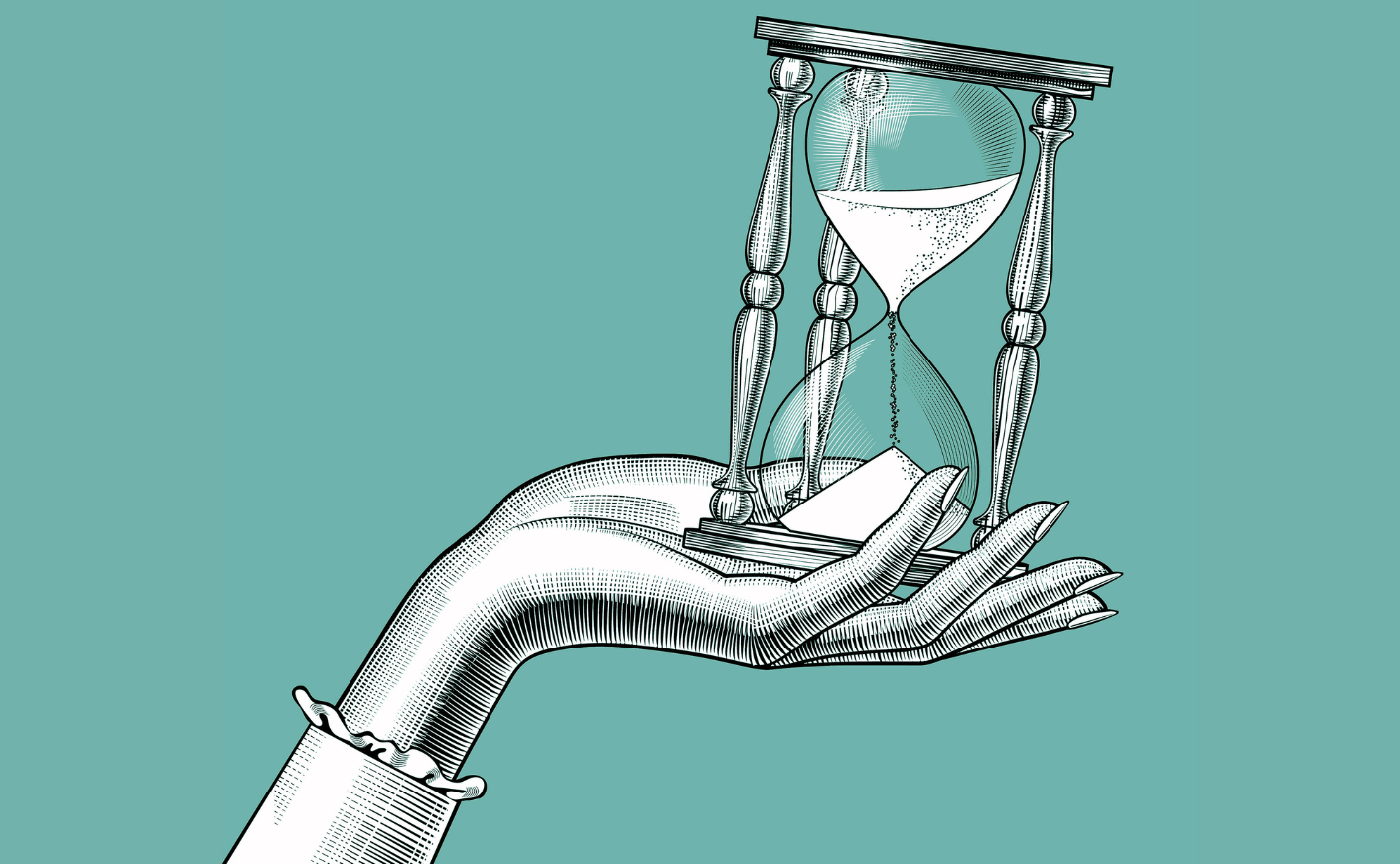If you’ve finally felt your first hot flash or started noticing irregular periods, you may be wondering, when does menopause start? Or maybe you’ve been anticipating the onset ever since your mom went through it and now you’re waiting your turn. But “the change” isn’t as predictable as we all would like it to be. Menopause doesn’t happen suddenly and it hits everyone at a different time.
Some researchers even believe that this fundamental reproductive stage could potentially be delayed as women have kids increasingly at older ages, and humans start to live longer.
But we don’t blame you for wanting a roadmap. Thankfully, there are some benchmarks you can keep track of and signs that this major life stage is approaching, which we’re breaking down below.
When does menopause start?
According to the Cleveland Clinic, menopause is defined as “the permanent ending of menstruation.” Doctors typically diagnose it when a woman has gone 12 consecutive months without bleeding. At this stage, your ovaries have officially stopped releasing eggs and stopped releasing most of their female sex hormones known as estrogen.
While age may vary, this “change of life” as it’s known generally occurs between 45 and 55 years old, though some women start the first phases of the change in their early 40s. On average, it hits at 52, according to the U.S. Department of Health and Human Services.
That said, your body may start providing clues that the menopause process is starting well in advance and this stage is known as perimenopause. During this time, menstrual periods typically become irregular and taper off. You might even experience the other extreme — your periods may be very heavy and occur closer together. As the North American Menopause Society points out, it’s still possible to get pregnant during perimenopause because you’re still ovulating. The first signs of menopause, other than a change in your monthly cycle, are hot flashes and night sweats. You might experience more unusual symptoms, like breast tenderness and dizziness due to a sudden drop in hormone levels.
Is the onset of menopause shifting?
Even though this theory isn’t considered mainstream, some evolutionary biologists believe the start of menopause could be delayed as more women become mothers later in life. The average age of first-time moms is still 27.3 years old, but births among women in their 40s have been steadily rising since the early 1980s, when the number of women entering the workforce soared. In fact, women ages 40 to 44 had 114,730 of the 3.8 million babies born in 2017.
Humans are also living healthier and longer lives than ever before, which could alter menopause’s timeline. Life expectancy in the U.S. increased from 76.4 to 77.5 in 2022 following a dip during the deadly coronavirus pandemic. Anthropologist Megan Arnot told The Atlantic that if older parents keep having kids she “could see the age of menopause getting later.”
But postponing menopause might not take generations — it could be as simple as eating a healthy diet from an early age. Researchers have already linked malnutrition to early menopause. That said, doctors say putting off this change of life may come with some increased risks for breast or uterine cancer, blood clots, and stroke.
It’s unclear whether these evolutionary changes could make menopause disappear altogether, but it’s worth noting that humans are among the very few mammals that become infertile at midlife.
How long does menopause last?
Think of menopause as more of a marker of the end of your menstruation, and peri- and post-menopause as the stages that can vary in length.
The transition from perimenopause to menopause can last anywhere from seven to 14 years, according to the National Institute of Aging.
The duration can depend on various lifestyle factors such as genetics, diet, stress, and general health. If you need another reason not to pick up a cigarette, studies have shown that smoking increases your risk of starting menopause one to two years earlier than nonsmokers. Plus, other research has shown that women who got their first period when they were 11 or younger are more likely to hit menopause before the age of 40.
When does menopause end?
The period after you haven’t had a period for 12 months is known as postmenopause.
For some women, their menopausal symptoms may get better at this point. Others, however, may continue to experience things like weight changes, hair loss, and night sweats. More than one-third of women even continue to have hot flashes for 10 years or more.
Whether you never feel a single hot flash again or continue to have them into your late 60s, everyone’s experience with menopause is unique. So remember that menopause is a journey for better or worse, and not a race.









